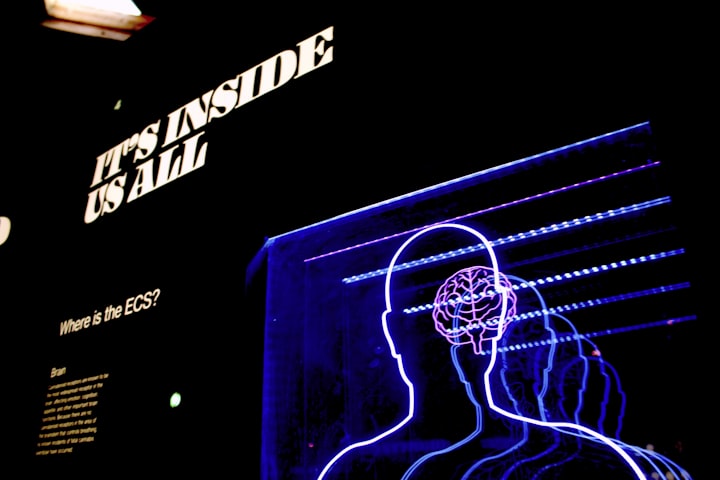TOP 10 PSYCHOLOGICAL FACTS YOU WON'T BELIEVE
THE REALITY OF OUR ILLUSIONS

The ability of psychology to understand the intricacies of the human mind and behavior is what gives it its strength. Psychology offers insights into the inner workings of our ideas, feelings, and motives that have the power to completely alter how we perceive ourselves and others. It provides a framework for examining the complexities of human nature and directs us towards personal development, strengthening bonds with others, and increased well-being.
We are given tools by psychology to help us deal with the difficulties and complexities of life. Through therapy and counseling, people can become more self-aware and learn techniques for dealing with their emotions, getting over traumatic experiences, and managing stress. Psychologists can assist people in healing by examining the underlying reasons for psychological discomfort. This will enable them to develop resilience and recover control over their life.
1. The fight-or-flight response is triggered by stress, and stress hormones like cortisol and adrenaline are released as a result. Although this reaction is necessary for survival, prolonged or chronic stress can harm our physical and emotional well-being. It can aggravate several ailments, including heart disease, depression, and anxiety problems.
2. Childhood Experiences' Influence: Our early experiences can have a long-lasting effect on our psychological growth and well-being. According to attachment theory, our social and emotional development is influenced by the nature of our early connections, particularly those with our carers. While traumatic experiences might result in psychological problems later in life, positive and loving experiences can promote resilience and strong relationships.
3. The human brain is very flexible and can change throughout a person's life. Neuroplasticity is a term that describes this idea. It implies that our brains may change the way that neural connections are made, create new ones, and adapt to new experiences, learning, and settings. This flexibility enables us to learn new skills, heal from wounds, and change our attitudes and behaviors.
4. Emotions and Decision Making: Emotions are very important in making decisions. Research has demonstrated that even when we think we are acting logically, emotions, particularly gut instincts, and intuition, can affect our choices. This shows that our emotions occasionally influence our decision-making, producing more desirable results than simply rational analyses.
5. The Influence of Perception: Our thoughts, feelings, and actions are significantly influenced by how we perceive the world. The same circumstance may be interpreted differently by two people, producing divergent behaviors. This emphasizes how our experiences are subjective and how perception shapes our psychological reality.
6. The Influence of Habits: Our everyday routines and behaviors are significantly influenced by our habits, which have immense power. According to research, habits are developed through a loop that consists of a trigger, a routine, and a reward. Understanding this procedure can assist us in forming healthy habits and kicking out bad ones. We can change our habits and enhance our lives by intentionally altering our routines and promoting desired behaviors.
7. The term "Halo Effect" describes our propensity to judge a person's overall character based on only one positive quality. For instance, if someone is physically appealing, we could presume they also have other admirable traits like intelligence or kindness. This bias may influence our decisions and perceptions, sometimes resulting in judgments of others that are unreliable.
8. The Influence of Prophecies That Come True: Our expectations and ideas about ourselves and other people can have a big impact on how we act and how things turn out. Positive expectations or views about our skills can improve our performance and boost our chances of success. Negative beliefs, on the other hand, can impair our performance and cause a failure cycle to continue.
9. Humans are by nature social beings, and our brains are designed to communicate and connect with others. Mirror neurons, which are now known to exist, help us understand and empathize with others by reflecting on their behaviors and feelings. This social brain network supports our capacity for cooperation, empathy, and negotiating tricky social situations.
10. Cognitive biases are systematic thinking flaws that might influence our judgments and decision-making processes. Humans are prone to cognitive biases. For instance, the availability heuristic encourages us to depend on the first examples that spring to mind when making decisions, whereas confirmation bias motivates us to look for evidence that supports our own opinions. Making more rational and unbiased decisions can be aided by being aware of certain biases.
In conclusion, the ability of psychology to improve lives, broaden our understanding of ourselves and others, and effect good change is what gives it its power. Psychology equips people to face obstacles, forge deep connections, and traverse the complexities of the human experience by delving into the complexity of human behavior and the mind. It is a discipline that has the power to transform people's lives, build up communities, and make the world a better, more compassionate place.
About the Creator
Zenia Samson
Hi, I'm Zenia and I love to get information and know the facts as I believe in the motto of "Knowledge is power" and I would love to be a powerful person.
Here im going to share my power with you
Thanks!






Comments
There are no comments for this story
Be the first to respond and start the conversation.